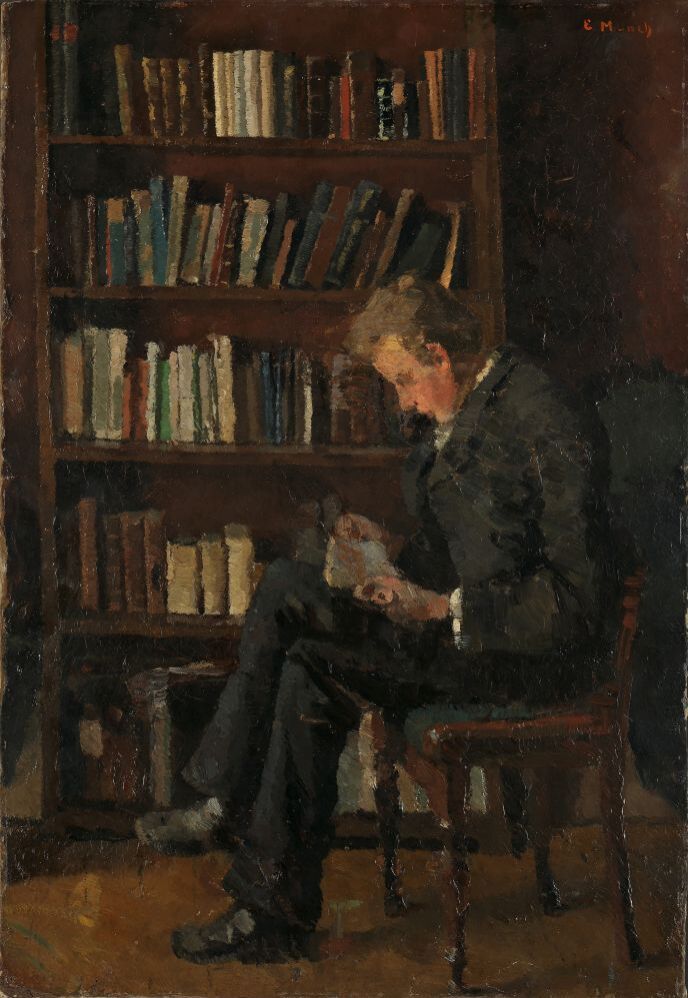Wednesday
Everyone knows that an essay needs a good thesis to be good. The same is true of a book, and although I have a complete manuscript of my book Better Living through Literature: A 2500-Year-Old Debate, I keep tinkering with my rationale for writing it. Here is my latest effort, which gets closer to the matter than anything I’ve written previously. The passage follows several memorable reading stories that I have included to demonstrate that literature matters:
Striking though these stories are, they are not unusual. Indeed, people have been having life-changing encounters with literature, oral and written, since families sat around campfires in prehistoric times. If STEM enthusiasts think they can sideline literature now, it’s partly because those responsible for sharing it with the public downplay or overlook its transformative potential. Think how differently literature would appear to people if they saw it helping us reconfigure damaged relationships, articulate life goals, deal with suffering, counteract oppression, and much, much more. In fact, what if they thought of literature as a personal improvement plan, designed by some of the world’s greatest minds and specially customized to their specific needs. At the cost of no more than a few hours of focused attention, you can receive a special program that knows you better than you know yourself—that intuits what you most desire and points the way towards a rich and fulfilling life. Book lovers already sense that literature can provide these services, but what if our educational and cultural institutions spread the word to everyone?
Instead, too many contemporary scholars treat literature as a specialized discourse, cut off from the rest of life. As this serves to marginalize literature, it’s easy for others to marginalize it as well. This is not how great thinkers of the past have seen it, however. Plato, Aristotle, and many who have followed have seen literature as a powerful change agent—usually for good although occasionally not—and they did so because they themselves felt transformed by literary encounters. Plato theorized about poetry’s life effects because he was shaken to the core by The Odyssey, and the same was true of Aristotle with Oedipus, Sir Philip Sidney with The Aeneid, Samuel Johnson with King Lear, Percy Shelley with Dante’s Divine Comedy, John Stuart Mill with Wordsworth’s Intimations of Immortality, Karl Marx and Friedrich Engels with Balzac’s Human Comedy, and Sigmund Freud with Oedipus and Hamlet. If these works had an outsized impact on them, they figured, then literature must be a force to be reckoned with.
While their writings on literature are well-known–most of the works treated in these pages appear in The Norton Anthology of Theory and Criticism–for the most part scholars have not focused on what these thinkers have to say about literature’s life-changing potential. My hope is that, by gathering the thinkers together and showing how each makes a compelling case for literature improving our lives, I strengthen the arguments against those who would relegate literature to the sidelines.
For those engaged in literary study, this book will serve as an overview of the debates, a fascinating subject in its own right. But for the average person and even the casual reader, the question of how literature affects us is no less important. It matters when we hear a book has been censored in our child’s school. It matters when the liberal arts come under attack, when schools are told to focus more on writing than on literature, when the classics are declared irrelevant. It matters when you yourself decide which books to read in your limited spare time, including what is lost when you settle for lesser lit. What are you depriving yourself of when you confine yourself to formulaic genre fiction or when you read no literature at all? The thinkers you encounter here have seen versions of all these situations.


